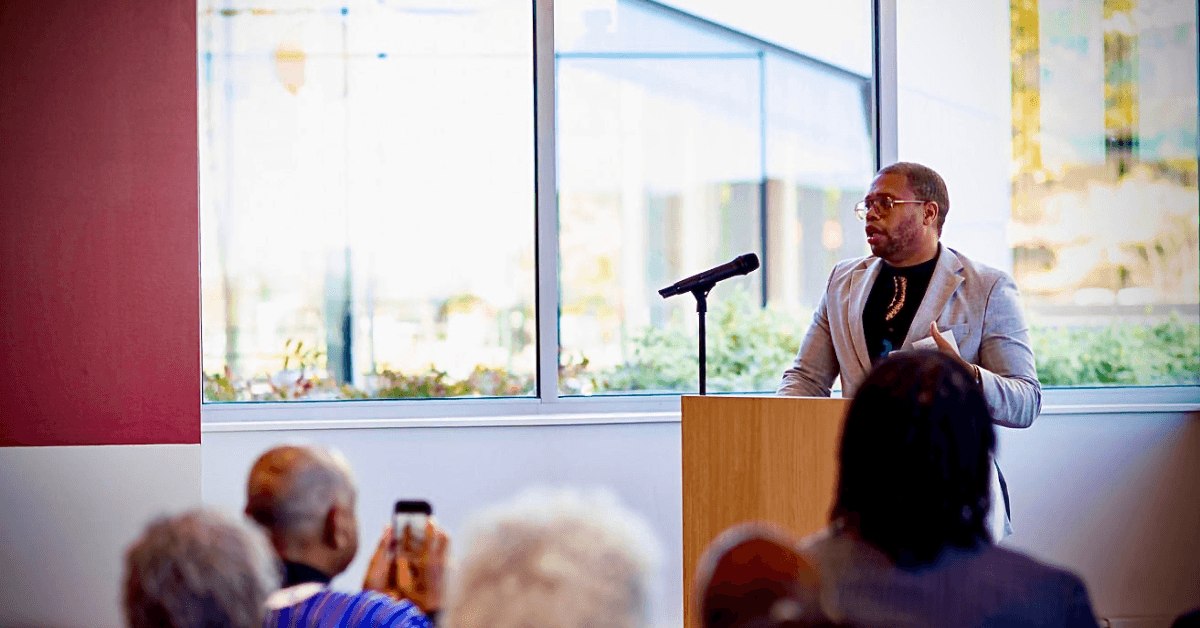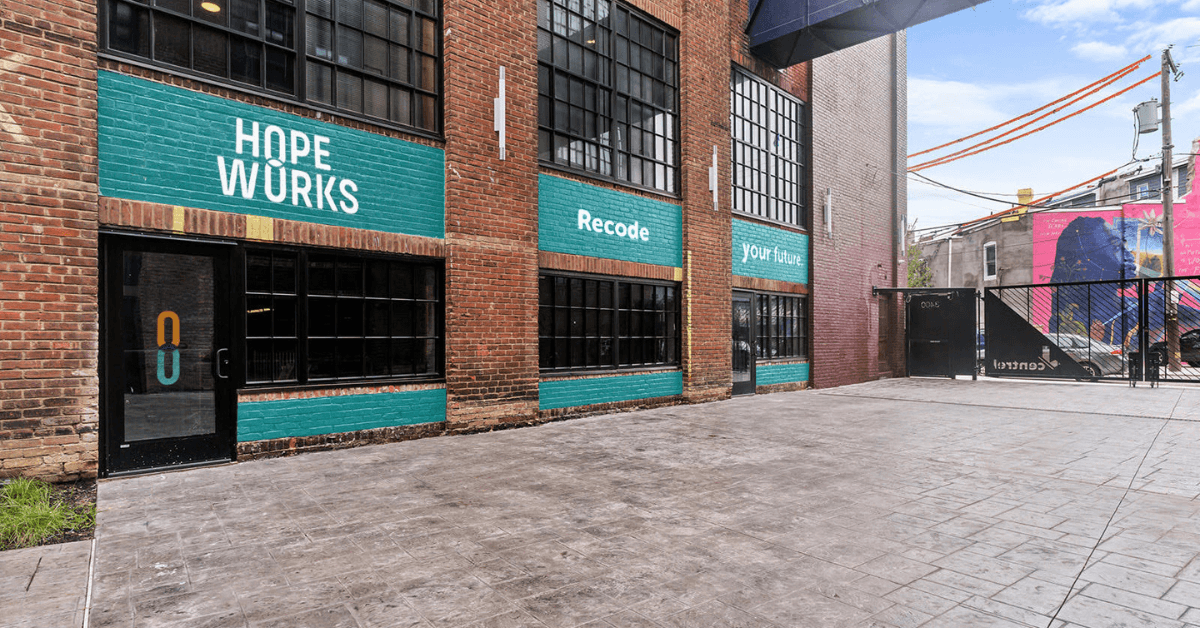Key Insights:
- In 2021, 2,710 tech talent jobs were added in Philadelphia, but Black professionals are still having a hard time landing jobs in the city.
- Tech workers in Philadelphia earn 86 percent of what their San Francisco counterparts earn, but the cost of living is 45 percent lower in Philadelphia.
- The highest concentration of Philadelphia’s tech workforce resides in the surrounding suburbs.
Overworked, underpaid, unappreciated: these are common sentiments that came from the great resignation over the last year, but when it comes to the tech industry, Philadelphia is still seeing growth. In spite of such, the city still has work to do when it comes to attracting and retaining Black tech talent.
Philadelphia ranked 22nd among cities in the United States and Canada with the most tech talent, with an increase of 2,710 tech talent jobs in 2021, according to a recent CBRE report.
But among those cities, compensation varies. In Philadelphia, workers earned 86 percent of what their counterparts in San Francisco made during the first half of 2022, according to a Carta report. In neighboring New York, tech compensation is equal to that of San Francisco, while in Washington D.C. and Boston, workers made three and four percent less, respectively. The average tech salary in Philadelphia is $97,822, the CBRE report found.
Granted, Philadelphia’s cost of living is significantly lower compared to that of San Francisco (45 percent lower), Washington D.C. (33 percent lower) and Boston (26 percent lower), and with remote work becoming more popular, Philadelphia is positioned as an attractive home base. Even so, some Black tech professionals are having difficulty finding opportunities at companies based in the city.
What Black tech professionals are saying
To understand why Black tech workers are leaving, moving to or remaining in Philadelphia, The Plug talked to the co-founders of Black Tech Philly, a virtual space for Black tech professionals, Ian Kimble, Khalil Saboor and Ryan Small.
Ian Kimble applied for tech roles in his hometown Philadelphia for two years with no luck before expanding his search. He eventually landed his current position as a software engineer at Brooklyn-based Change Machine working remotely.
“Exploring past the city limits at that point was absolutely necessary. I don’t think I really had much of a choice,” Kimble told The Plug.
“Even though in Philly [tech jobs] have increased, it’s still somewhat small. There’s still some implicit bias when it comes to finding talent in the city. A lot of employers will look in the same particular places and not really expand their scope in terms of someone’s background and experience,” he said.
While Philadelphia is an attractive hub for companies looking for tech talent with a number of universities housed in the city, including Temple, Drexel and the University of Pennsylvania, some Black tech professionals believe companies need to expand job qualifications.
Khalil Saboor said many companies hiring in Philadelphia have outdated hiring practices when it comes to education requirements — a deterrent for tapping into the city’s pool of Black tech talent.
“Philadelphia is always going to produce people with four-year bachelor’s degrees because of all the universities in the area, but what about people like me who couldn’t afford it?” Saboor told The Plug. “How do we get into tech?”
“It really hurts the talent pool. Diversity isn’t just race, it’s also down to someone’s background,” he added.
Kumba Janga, the president of the Philly chapter of Blacks in Technology, said companies that create partnerships with tech boot camps are on the right track to increase diversity in tech and help people navigate into tech careers.
“I randomly picked technology [as a major] and knew nothing about it and I’m glad that I did, but then think of the people that had no exposure,” Janga told The Plug.
“[Companies] need to be a little bit more linear because that is part of the problem. People who have not gone to school for technology may know nothing about [it] until recently,” she said, adding that many people are entering tech careers after going through boot camp programs later in life.
In fact, Black Tech Philly co-founders Khalil Saboor and Ryan Small met at a boot camp in Delaware. Small, a software engineer at enfuse.io, worked in banking for 10 years before pivoting to tech.
“It was good to see someone Black and that young making that switch as well,” Small said of Saboor.
Where people are going
Now working as a senior software engineer at JPMorgan & Chase, in her 16-year career in tech, Philly native Janga has found all of her job opportunities outside of the city.
The highest concentration of Philadelphia’s tech workforce resides in the surrounding suburbs, according to The Economy League of Greater Philadelphia. Nearly three percent of Philadelphia residents are employed in computer or math-linked professions, compared to 5.9 percent in nearby Chester County.
Saboor, a Philly native, relocated to New York City in January for his current role as a software engineer at American Express. He previously worked for GSK, a pharmaceutical company in Philadelphia.
“You’re able to apply to a job in Seattle or the Silicon Valley and be in Philadelphia, but now you have the issue where things are opening up and companies are asking for people to come in,” Jenga said.
In Philadelphia, Capital One is trying to get its tech workers to come back to physical office spaces with a new 22,000-square-foot development in Center City for incoming tech talent. The company also plans to hire at least 100 tech employees.
Next steps
Philadelphia has a track record of investing in the Black innovation economy but needs to accelerate efforts to attract and retain Black tech professionals.
In 2018, the city partnered with Black & Brown Founders, a nonprofit organization that provides community, education and access to Black and Latinx tech entrepreneurs, to host Project NorthStar, a three-day tech conference that aimed to provide connections, education and opportunities for current or aspiring minority entrepreneurs and professionals.
Similarly, companies headquartered in Philadelphia need to take more measures to ensure that the growing tech talent reflects the racial makeup of the city. Kimble believes one such action is transforming work culture.
“A lot of Black developers and people in this industry that I know have had really bad experiences where they felt that they’ve been purposefully left out of certain projects that could really benefit them in terms of their long-term careers,” Kimble said.
“Dismantling implicit biases in those workplace cultural attitudes can make these types of environments conducive for not only just Black developers, but developers of all origins,” he said.








